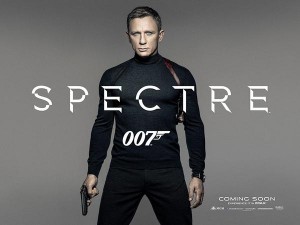The Unbearable Whiteness of “The Intern”

Shiny Happy People
Because I have committed terrible crimes in a past life, The Duchess made me watch The Intern the other day. Someday I will get myself hypnotized to discover what sort of child-killing Venetian nobleman I was in the past to deserve stuff like this, but for the moment I just accept my punishments as what I deserve.
A pretty not-good comedy starring Robert De Niro as a 70-year old widower who participates in a “senior” internship program at Anne Hathaway’s ultra-hip startup based in Brooklyn, the film sparked an observation I make from time to time that drives The Duchess crazy: A Whiteness Analysis. And holy cow, this is the whitest movie I’ve seen in a long time.
Now, I don’t think every single cast has to be colorblind or forcibly integrated, and yes, there are also films with entirely black (or other) casts. But it’s easy to argue that an all-black film is a necessary correction against the overwhleming diversity problem in mainstream Hollywood, and many of those films also include at least a few white folks, because they’re set in something resembling the real world. Films like The Intern are set in a weird fantasy land where Brooklyn, New York is more or less a White Enclave. Literally no one with any sort of face time in the film is non-White (there might have been a few background characters who were black or another ethnicity). In other words, a film set in a borough of New York City that has
- a population of 2.5 million people and which is
- about 36% non-White (or, you know, nearly one million people)
doesn’t have any non-white characters.
As Gwen Stefani might say while she was appropriating even more Japanese culture to sell us her wretched things, that’s bananas.
The Opposite of Good
Now, I’m no paragon of racial virtue. I’m an asshole, and I walk about draped in my white privilege like some sort of King. But I grew up in Jersey City where my friends and schoolmates were of a wide variety of cultural and ethnic backgrounds, so my eye is trained to think that a lot of skin tones and accents and strange cooking smells that hit you in the face when you come over for dinner is normal. Bland Whiteness, on the other hand, freaks me out, even though I am quite bland and quite white.
None of that means a movie is good or bad. A movie can have a painfully white cast and still be amazing — and vice versa. It’s just that once I notice the absolute lack of black characters of any kind, it grates on me a little. Sometimes it’s justified due to the focus of the story or the setting, true enough. But not The Intern, as noted above, because it’s set in one of the most racially diverse places in America.
And let’s be frank, The Intern isn’t a good movie (er, spoilers here if you care, though I can’t imagine why you would). It’s not awful, but it’s that mythical story that lacks any sort of conflict. De Niro’s character is friendly, supportive, intelligent, and only mildly stymied by modern technology and slang. His fellow interns and the employees at the company find him charming and a font of wisdom. Anne Hathaway’s major problem is that the investors at her wildly successful company want her to hire a CEO. And yes, her husband is cheating on her — but, as it turns out, only because she has emotionally abandoned him, he totally still loves her he’s just a modern man struggling to find manliness while being a house husband. Or something.
In other words, there’s no villain, no conflict. Everyone is jolly. Lessons are learned. The movie feints at making Hathaway’s character a bitchy ageist who dislikes De Niro simply because he’s observant while being old, and resolves this ghostly image of conflict literally one minute after it surfaces. This is a movie where everyone apologizes immediately for every single mistake so that no drama can possibly sprout from the seed. In that regard its very much like Downton Abbey, another show where conflict goes to die in a field of muttered apologies and hugs. And also a very, very white show, but they have at least established that black people and Indian people, at the very least, exist in the Downton universe. Plus, as mentioned above, the focus and setting on that show justify the monochromism to some extent, even if there is absolutely no justification for the total lack of stakes or conflict.
Authorial Struggle
Are there areas of this country where literally everyone around you is white? Sure, of course. And maybe those audience segments get unsettled when they see a diverse cast, so maybe there’s a marketing aspect to this sort of casting. I know in my own writing I sometimes have to take a step back and ask myself if my characters are all essentially just me and people I know and am comfortable with, and sometimes I purposefully model a character on someone outside of my tiny circle of friends in order to break out a little. So I can see that if you’re a writer who has pretty much all-white friends and family (which is just a circumstance and does not mean they’re a virulent racist) they can unconsciously write characters who are all more or less familiar to them without thinking about how it all looks.
That can happen. You write what you know, and if you don’t have anyone outside of your own ethnic and cultural experience around you, that’s a thing that can happen. It’s still jarring to see it, whatever the ultimate explanation.
Of course, if I started writing characters based on only the things I interact with on a daily basis, all of my books would feature cats, and would basically be 300 pages about napping.









